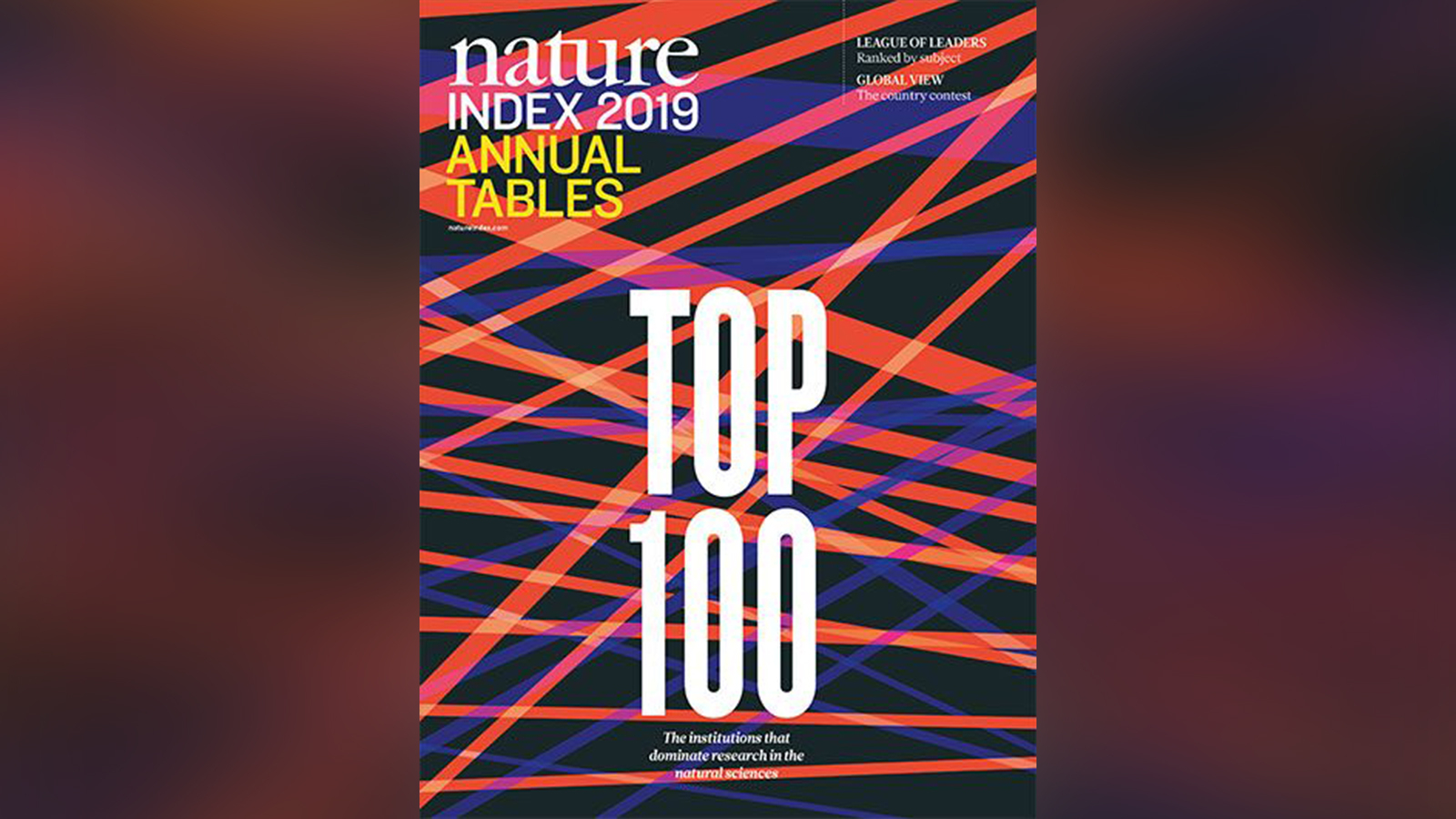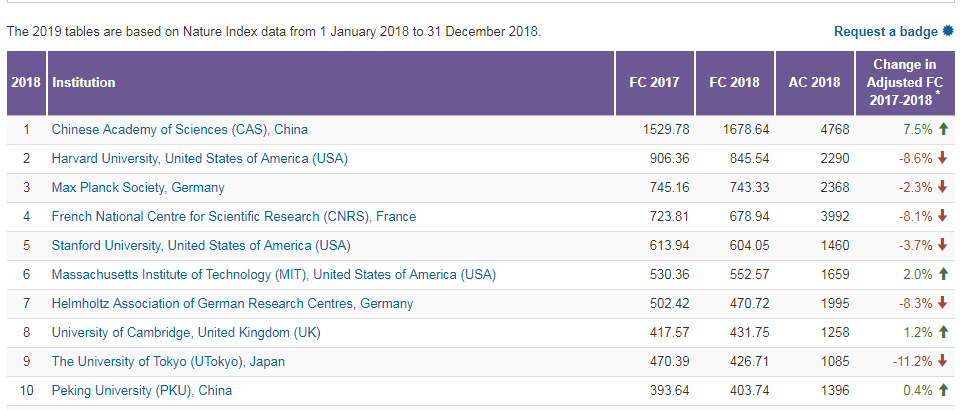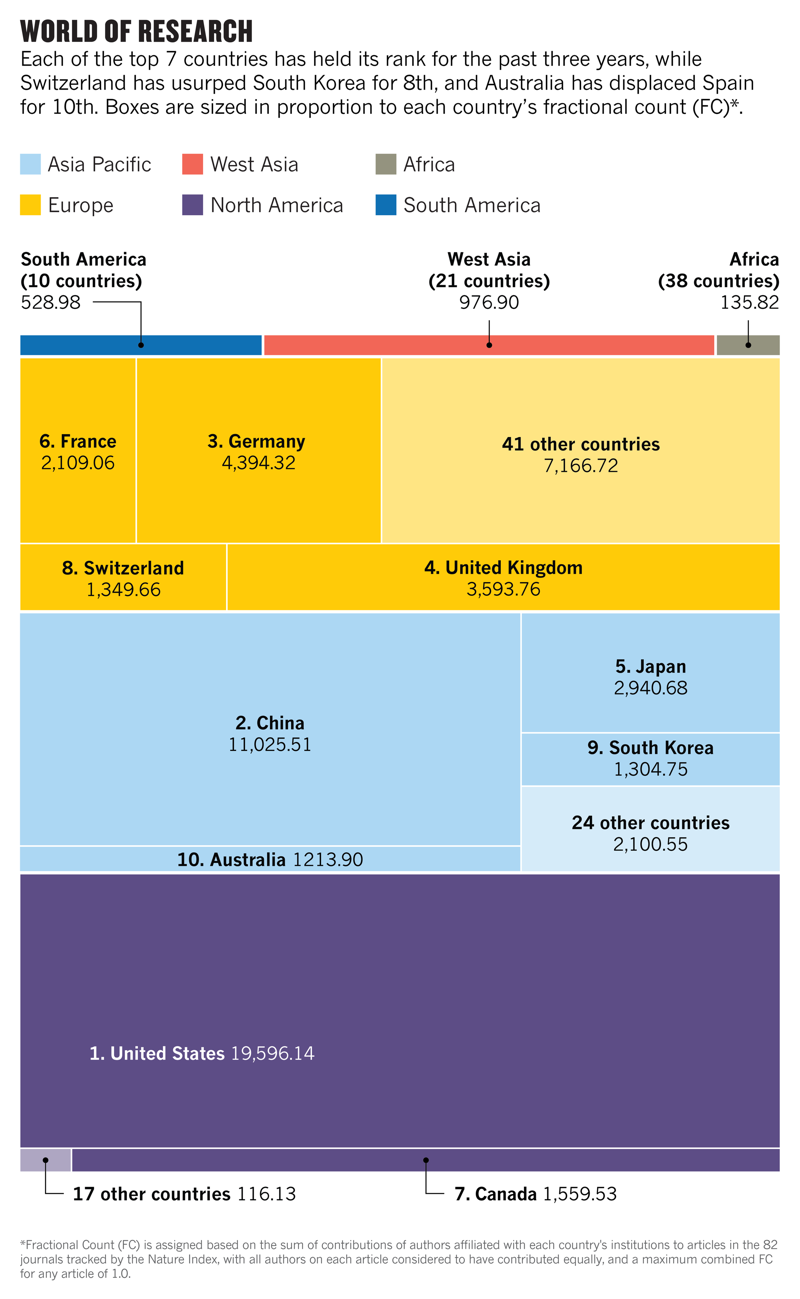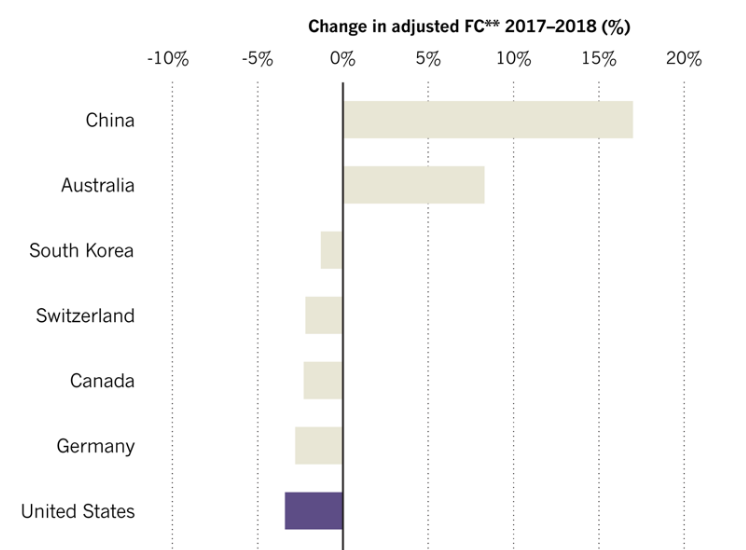

The Chinese Academy of Sciences (CAS) has once again dominated the top spot in the Nature Index Global Top 100, a ranking that highlights the institutions and countries with the highest outputs in the natural sciences in 2018.
Nature Index 2019 Annual tables, including the Top 100, as well as top 10 institutions for top-quality research output by subject, in life sciences, chemistry, the physical sciences and Earth and environmental sciences, were published by Nature on Wednesday.

Source: Nature Index
The CAS maintains its stronghold as the world's most prolific publisher of high-quality research. It also recorded the largest growth in publications among the top 10 institutions.
In the 2019 Annual Tables, CAS also topped the categories of physical sciences, chemistry, Earth and environmental sciences, and government institutions.
This marked the fourth consecutive year for the CAS to be the Top 1 of the overall ranking, and the first time for Peking University, one of China's top two universities, to make its debut among the top-notch science research team, knocking the University of California, Berkeley, out of the top 10.
According to Nature, there are lots of qualities that could be used to define greatness, but the Tables rely on just one: The share of articles published in 82 prestigious scientific journals, selected by an independent panel of scientists and tracked by the Nature Index database, which is also known as fractional count (FC).
In the top 10 countries that dominate natural-sciences research ranking, China, followed by Germany, the UK and Japan, is taking up ever more space, ranking just after the U.S.
Of the Top 50 global institutions with the biggest rises in FC in the past three years, 43 were in China including all of the top 10.

Source: Nature Index
Although the U.S. is taking control of the domination in terms of output, FC for the country has decreased by more than most countries in the top 10.

Changes in FC by country /Source: Nature Index
According to the research conducted by Simon Baker for Times Higher Education, China could overtake the United States on a key measure of research quality by the mid-2020s, with potentially major implications for worldwide academic collaboration.
The Times reported that the trend analysis shows the end of "U.S. hegemony" in research may not be far off, indicating that China's rapidly improving performance on overall citation impact might see it match the U.S. in as little as seven or eight years.

Copyright © 2018 CGTN. Beijing ICP prepared NO.16065310-3
Copyright © 2018 CGTN. Beijing ICP prepared NO.16065310-3